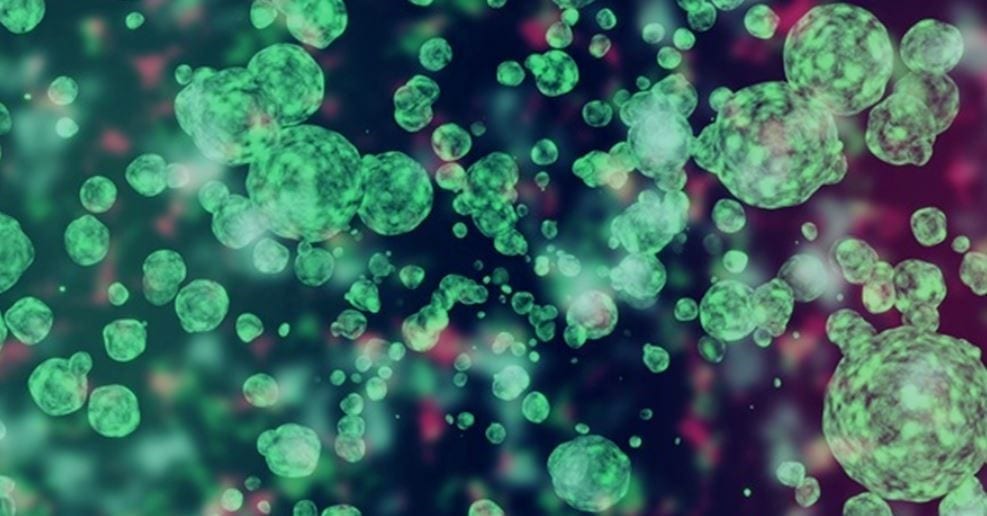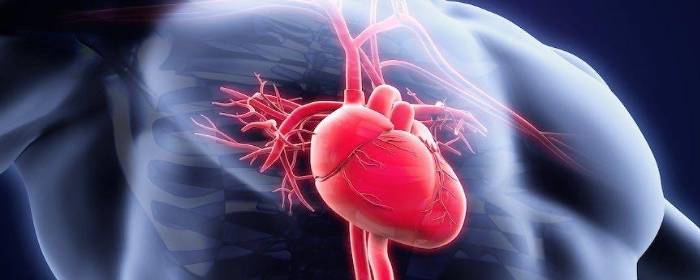
by admin | Jan 25, 2019 | Exosomes, Stem Cell Research
Heart disease is the leading cause of death in the United States, killing over half a million people every year. Heart disease encompasses several conditions and diseases, but the most common causes of deadly heart disease are a heart attack, heart rhythm problems, and heart valve problems. In each of these cases, damaged heart tissue becomes dysfunctional and the heart cannot pump blood efficiently or effectively. To combat this deadly set of diseases, researchers are searching for ways to heal and regenerate heart tissue. Stem cells and stem cell exosomes have shown promise.
While stem cells have been used in a variety of conditions, researchers long doubted the benefit of stem cells in heart disease. The heart, it was believed, was not a “hormonal” organ and thought to be relatively unresponsive to things like cytokines and other messengers. Fortunately, new research has completely changed this viewpoint. According to Drs. Sean Davidson, Kaloyan Takov, and Derek Yellon of the Hatter Cardiovascular Institute in the United Kingdom, “Most, if not all, cells of the cardiovascular system secrete small, lipid bilayer vesicles called exosomes.” The scientists go on to say that exosomes from stem cells “have been shown to be powerfully cardioprotective” and that exosomes produced by stem cells are capable of “activating cardioprotective pathways.”
In simpler terms, the heart and blood vessels are sensitive to the beneficial effects of exosomes. Thus, if exosomes are collected from stem cells, purified and concentrated, and then reinjected into the body, they can repair heart tissue. For example, exosomes collected from mesenchymal stem cells were able to reduce the amount of damage caused by a heart attack in mouse, and improve heart recovery after the event. This could have profound implications for humans who suffer a heart attack since damaged heart tissue can lead to heart failure, heart valve problems, and heart rhythm problems.
The study of stem cells and stem cell exosomes in heart disease is a relatively new science. Clinical trials will need to be performed to determine the role of exosomes in the treatment of heart disease. However, these findings represent an exciting avenue of research in the field of cardiology and regenerative medicine.

by admin | Sep 27, 2018 | Heart Failure, Stem Cell Therapy
People with heart failure may have trouble breathing, walking, and having a normal life. Current treatments for heart failure are aimed at making the healthy heart tissue pump harder (e.g. digoxin). On the other hand, treatments largely ignore dead heart tissue because there A myocardial infarction, better known as a heart attack, occurs when blood flow through the coronary arteries to the heart is blocked. This usually occurs when a blood clot forms in a coronary artery. Since the heart is a highly active muscle, it requires a constant supply of oxygen and nutrients to maintain its pumping function. When the heart muscle is starved of oxygen, as is the case during myocardial infarction, heart cells become dysfunctional. If blood flow through the coronary arteries (which carries oxygen to the heart) is not restored soon after a heart attack begins, those dysfunctional heart cells will die.
When heart tissue has been destroyed by a heart attack, patients are usually left with poor heart function. This can lead to congestive heart failure. One way to determine whether someone who has had a heart attack has suffered lasting heart damage is to perform an echocardiogram, or simply an “echo.” By performing an echo, doctors can estimate the heart’s ability to pump blood by measuring left ventricular function.
has been no known way to rescue it. With the discovery and use of stem cells, however, there is a chance that scientists may be able to rescue dead heart muscle and improve cardiac function.
In a study, researchers blocked the coronary arteries of experimental animals to cause myocardial infarction. Four weeks later, they injected either bone marrow-derived stem cells or adipose-tissue-derived stem cells into the heart. Impressively, blood flow significantly improved to the heart and heart function. Treated animals had substantially higher left ventricular ejection fraction, essentially reversing heart failure a full month after a heart attack. Shockingly, the researchers found that stem cells appeared to salvage dead heart tissue, meaning that the size of the damaged area was smaller after treatment.
While these incredible results will need to be replicated in humans, this research represents an exciting breakthrough in cardiology and regenerative medicine. The stem cell approach may be able to help patients who have had a heart attack, but could not get medical treatment in time to remove the clot.

by admin | Aug 15, 2018 | Health Awareness, Heart Failure
Heart disease is one of the most prevalent heart condition that affects both genders, but there are certain heart conditions that affect only women and have different symptoms. For women, what are the signs to look for and what can they do to manage and be preventative.
Warning Signs
Many believe that during a heart attack one experiences severe chest pain, however, this may not be the case for all. Women usually have less obvious signs like shortness of breath, pain in the back, upper belly and jaw. Some may also feel light-headed, dizzy or nauseous.
Broken Heart Syndrome
The official term for this condition is stress-induced cardiomyopathy, and it’s more likely to happen to women as compared to men. It’s caused by an abrupt release of stress hormones, and it happens after very emotional events like divorce or a death in your family. A part of your heart gets bigger and can’t pump blood properly. This can cause intense chest pain, but with quick treatment, this can lead to a full recovery.
SCAD
This condition is called the spontaneous coronary artery dissection which occurs when one of the blood vessels of the heart tears. This can lead to a block or slowing down of the blood flow causing intense pain the chest along with many other symptoms. SCAD is a serious heart condition that requires immediate treatment. This happens more in women who have recently given birth.
Menopause
Menopause doesn’t cause heart disease, but the body changes a woman experiences may make her more likely to develop the condition. As the levels of estrogen in the body decrease, arteries become stiffer. After menopause, the belly fat, blood pressure and bad cholesterol levels increase so it is suggested to stay active to keep the heart healthy.
Inflammation
If you have a condition like lupus or arthritis that cause inflammation, then you have more risk to develop a heart disease. By managing inflammation and avoiding steroids, this can help prevent developing heart disease. It is suggested to consult with your doctor for the best way to protect your heart.
Diabetes
Your chances of developing heart disease is greater if you have diabetes. The sugar in the blood slows down the flow of oxygen and this can lead to a buildup of plaque in the arteries. Women who have diabetes are generally over weight with high cholesterol and blood pressure. Try to keep your sugar levels and weight under control with proper diet and exercise.
Depression
Suffering from depression can also increase your chances of having heart disease. It can cause you to stay inactive and neglect your health. The continuous stress and anxiety can have a bad impact on the heart. Talk to your doctor if you think you need help managing depression.
Being Thin Does Not Guarantee a Healthy Heart
Yes, women who are overweight are more likely to have a heart condition but being thin doesn’t eliminate you from the risks for high blood pressure and cholesterol.
Steps for Prevention:
Check Your Family Tree
If women in your immediate family, like your sister or mother, have had a heart condition before the age of 65 or if they’ve had a stroke, you may have a greater chance to have heart disease. It Is best to let your doctor know your family history so they can help you lower your chances.
Quit Smoking
Smoking can also increase the odds of the condition as well as your chances of a stroke by 25%. Smoking damages the blood vessels and increases blood pressure, which can lead to blood clots.
Watch Your Cholesterol
Cholesterol can build up in the arteries causing plaque to build up and harden and clog the arteries. By taking a routine blood test, you can be aware of your cholesterol levels. If your bad cholesterol levels are high, try making small changes like reducing sugar and fat intake while increasing more frequent exercise.
Manage a Healthy Weight
Eat fresh foods that are low in calories, fats and sodium. Take heart healthy cooking classes or watch online videos. Find activities that are fun and active, like going for a walk with a friend or taking a Zumba class.
Fitness Matters More After 40
Making small changes to your daily routine can significantly help. Even if you have never worked out, take the necessary steps to maintain your fitness after you hit your 40s. You can cut your chances of heart conditions by engaging in regular exercise.
Pregnancy Heart Protection
During pregnancy, the heart pumps more blood than usual. This can lead to excessive stress on the arteries and heart. Women who already experience valve issues should look out for signs like a fast heart rate, shortness of breath and infections during pregnancy. If you have high blood pressure be careful as it can lead to a condition called preeclampsia that can be of threat to both the mother and the baby.




 St. Petersburg, Florida
St. Petersburg, Florida
